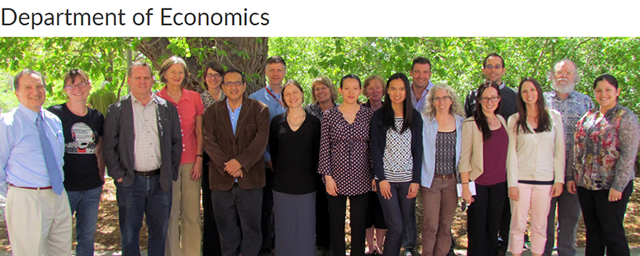
Economics ETDs
Publication Date
Fall 12-19-2022
Abstract
While early childhood circumstances influence the accumulation of skills and abilities, parental and policy responses can magnify or mitigate the effects of childhood circumstances. This work explores the two ideas mentioned above.
Chapter 1 briefs the historical and philosophical roots of the study of human capital and discusses the economic approach to the understanding of child wellbeing before the age of five. Because childhood circumstances influence the accumulation of skills, Chapter 2 estimates the impact of temperature shock during pregnancy on early childhood health. Evidence from Nepal shows that prenatal exposure to high-temperature days impedes child growth; however, the damage appears to be transitory as opposed to persistent – as the effect decreases with age and becomes almost undetectable by age five. Both market and non-market mechanisms are explored.
Because parental and policy responses can magnify or mitigate the effects of childhood circumstances, Chapter 3 investigates parental response and Chapter 4 explores policy response. Using the socio-economic context of Nepalese children under five, Chapter 3 shows that mothers equally invest time among boys and girls, irrespective of activity types. Son preferences among Nepalese mothers, therefore, may not be an actual preference, but rather arises due to cultural and social constraints. More importantly, maternal time input is an important determinant of a child’s cognitive and behavioral outcomes.
Using a sample of under-five children whose childcare was subsidized by the state of New Mexico, Chapter 4 analyzes the behavioral effects of families’ childcare cost (copayment) on childcare arrangements, focusing on the non-parental care characteristics that promote child development. The results show that higher copayment increases the likelihood of selecting lower-quality rated childcare and home-based childcare, suggesting that reducing copayment may be an effective policy tool for better childcare arrangements. Finally, Chapter 5 provides the concluding remarks, the direction of future research, and policy perspective.
Degree Name
Economics
Level of Degree
Doctoral
Department Name
Department of Economics
First Committee Member (Chair)
Alok K. Bohara
Second Committee Member
Robert P. Berrens
Third Committee Member
Kira M. Villa
Fourth Committee Member
Bibek Adhikari
Language
English
Keywords
Human capital, early childhood
Document Type
Dissertation
Recommended Citation
Bishwakarma, Rajan. "ACQUIRED AND USEFUL ABILITIES: THREE ESSAYS ON HUMAN CAPITAL DEVELOPMENT." (2022). https://digitalrepository.unm.edu/econ_etds/123
